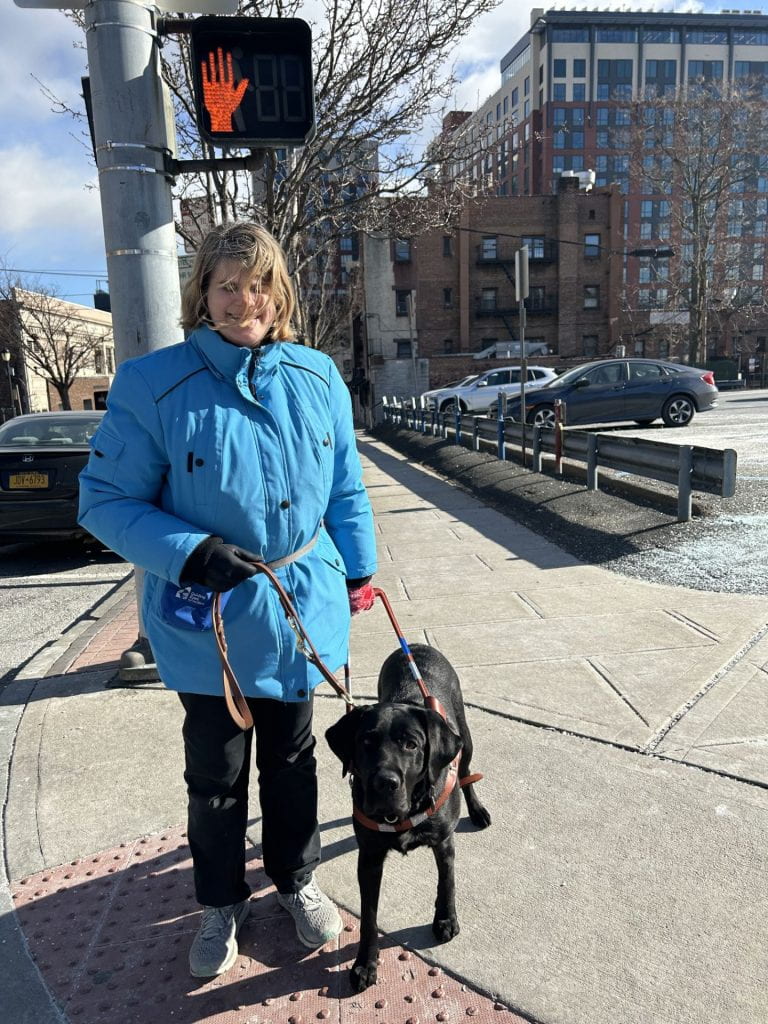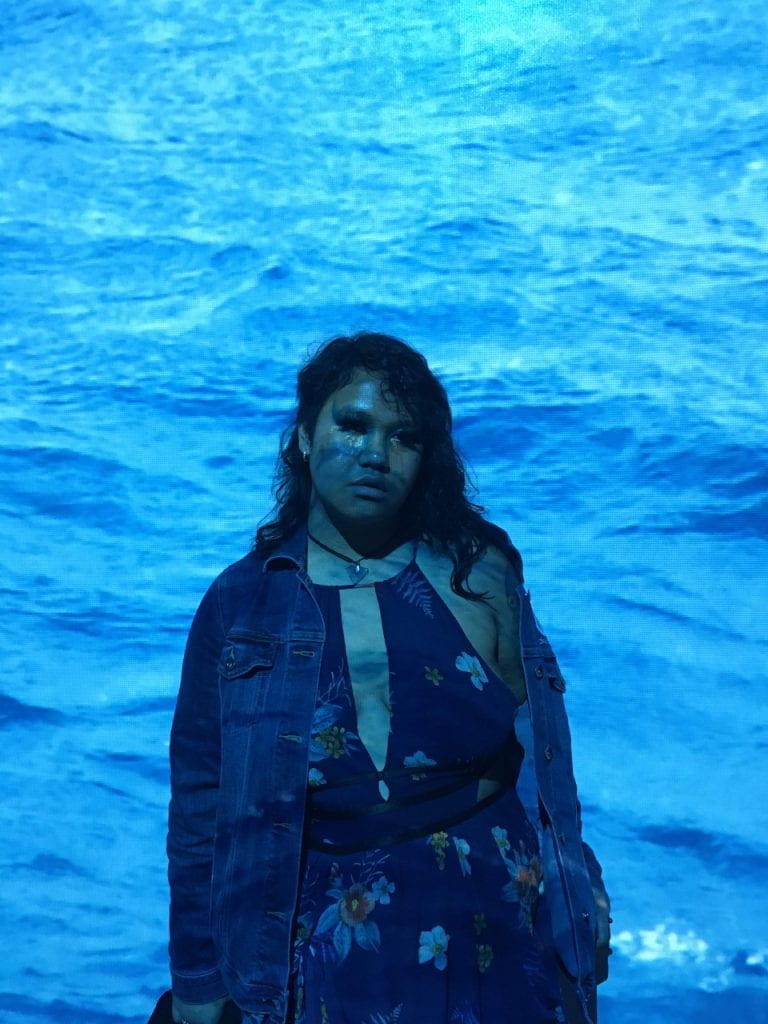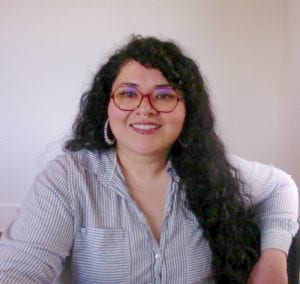The ICDS Fellows Program is on Hiatus due to funding. Our hope is to bring back this valuable program soon! Please contact icds@wwu.edu with questions.
The WWU Institute for Critical Disability Studies supports faculty, staff, and community members with fellowships to develop programs and carry out projects related to disability scholarship and advocacy. Each year, we build a cohort of Fellows from differing professional and advocacy backgrounds. These fellows meet periodically throughout the calendar year to work together on their projects and learn from each other’s skills and interests.
Fellows are awarded $3,000 annually as part of their Fellowship. Fellows also have the opportunity to consult with one or more paid Project Mentors during their time in the Program.
Navigate this page
ICDS Fellows Program Mission
The goal of the WWU ICDS Fellows Program is to create a venue where faculty, staff, and local community members can develop collaborative programs and initiatives related to disability scholarship and advocacy.
About the Fellows Program
What do Fellows do?
Our fellows take on a wide range of projects. Click or tap here to read about some project examples and learn about how the program is structured…
Some possible projects could include, but are not limited to:
- Developing a community-focused event or program
- Traveling to conduct research at an archive or to gather interviews from the community
- Building a social network among activists and artists within a community
- Creating an art project and sharing it with the public
- Conducting scholarly research and developing writing projects
While we would like you to have some ideas and general direction for what you’d like to do as a Fellow, you do not have to have a firm plan finalized in order to be accepted into the ICDS Fellows Program. Much of our early work in the Fellows Program can include planning and project development in consultation with Program Mentors and with the collective support of your peers in the Program.
Program Structure
The participation of Fellows in the Program is structured as follows:
- Each Fellow will submit an application in which they propose ideas and projects they are interested in working on for their fellowship period.
- Each Fellow receives $3,000 as part of their Fellowship. The awarded funds are distributed in two payments, half at the beginning and half at the conclusion of the Program.
- Fellows will meet with mentors based on their interests and project focus. Fellows will have regular opportunities to meet and check in with multiple mentors during their project development stage.
- Fellows meet as a full cohort regularly throughout the calendar year, including summer. These meetings will be hybrid, allowing both in-person and online participation.
Program Outcomes
Click or tap here to read more about the main outcomes for the fellows program…
This is a process-driven program, rather than a product-driven program. What this means is that you will be working toward a goal, but it is not vital that you finish the project within the year of the fellowship. Some projects may turn out to be too big and ambitious to finish in just one year. The Fellows Program is here to help you along the journey.
There are three main outcomes for the fellows program:
- At the beginning of the program, we will ask you to write a brief introduction of yourself and your tentative project ideas, which we will publish in our 2024 ICDS Annual Showcase newsletter. We will help you with any editorial support you should need.
- In October, we will invite you to give a 10-30 minute presentation about your work in progress as an ICDS Fellow at the annual Disability Studies and Action Collaborative UnConference. This year, the UnConference is happening Saturday and Sunday, October 19 and 20, 2024.
- By the end of the program, February 2025, we will ask you to write a short follow-up report on your work as a ICDS Fellow. This final report will be published in our annual 2025 ICDS Annual Showcase newsletter.
Getting Involved
Click or tap here to learn more about how to get involved in the ICDS Fellows Program as a Fellow or Project Mentor…
Fellows: How to apply to the ICDS Fellows Program
Applications for the 2024 Fellows Cohort will open on Friday, March 01, 2024 and will be due at 11:59 pm on Monday, April 01, 2024. Finalists will be contacted for interviews in the first half of April.
How to become a Project Mentor for the ICDS Fellows Program
Fellows partner with ICDS Fellows Mentors, who are faculty, staff, or community member mentors with expertise or experience in disability scholarship and/or advocacy. Mentors meet with Fellows to discuss their projects and offer support. Project Mentors are compensated for each mentorship session.
If you are interested in serving as part of our Mentor team, please contact icds@wwu.edu so that the ICDS co-directors can follow-up with your questions and set up a phone call or Zoom meeting.
Meet the Institute for Critical Disability Studies Fellows
Meet the 2024 Cohort

Chapi / Sharon Alfaro
she/her/ella
Click or tap to read more about Chapi…
Hello, my name is Sharon Alfaro but I go by Chapi. My pronouns are she/her/ella. I have worked in the mental health industry for four years up to very recently and it is my biggest passion of all. This is why I decided to make my project mental health and illness related. I currently work as a phlebotomist at labcorp and am a full time mom to three fur babies. I am more than excited for this fellowship and hope I can wow everyone. My goal is not just to wow everyone, but also educate my community and fellow Latinx members

Steve Hickenbottom
he/him
Click or tap to read more about Steve, an educator at Edmonds College…
I’m an educator from Seattle, Washington, working in transition skills for students with disabilities at Edmonds College. I grew up in the Ballard area of Seattle and received my bachelor’s degree in history from Western Washington University in 2008. After college I started working as a Special Education paraprofessional in the Seattle School district. Eventually I went back to school and received a Washington State Teaching Certificate in Special Education and taught in the Seattle and Shoreline School districts before moving to Edmonds College in 2023. In my role at Edmonds College I work to support students developing self advocacy and workplace readiness skills as they transition from high school to college/work. I love working with my students and seeing them discover their strengths and passions!
In my free time I enjoy spending time outdoors in the Pacific Northwest, particularly the North Cascades. I love exploring new places and meeting new people along the way. In the ICDS Fellowship I’m excited to explore ways to expand disability services to historically underserved populations through outreach and education. Access to services should not depend on an individual’s income or circumstances and I’m passionate about finding ways to expand access to local and state resources for people with disabilities.

Alexander Jones
he/him
Click or tap to read more about Alexander, Accessibility Specialist at Woodland Park Zoo…
Alexander Jones, the Accessibility Specialist at Woodland Park Zoo focuses on all aspects of accessibility as it intersects with the guest, staff, and volunteer experience. He implemented The Guest Inclusion Program, a grant funded by the Institute for Museum and Library Services focused on creating inclusive informal programming across the zoo based on the principles of Universal Design for Learning. Working in the field of accessibility for over 9 years he brings a diverse perspective with both lived experience identifying as an individual with disabilities, a background in ADA compliance, Web Accessibility, a human design-centered approach, and adaptive therapeutic recreation. Alexander currently serves on the Seattle Cultural Accessibility Consortium as a steering committee member. While much of his work has been in the space of accessibility he is excited to dig deeper into disability justice in the fellowship at Western Washington University. He hopes this work will help create a deeper impact amplifying more disabled voices.
Meet the 2023 Cohort

Erica Bigelow
Click or tap to read more about Erica Bigelow, a Philosophy PhD Student at the University of Washington…
I’m a philosophy PhD student at the University of Washington, and am working toward a graduate certificate in science, technology, and society studies. I hold a bachelor’s degree from Stonehill College in North Easton, MA, and a master’s degree from Miami University in Oxford, OH. I’m also a steward & organizer with UAW4121, and a philosopher-in-residence at Rainier Beach High school in Seattle.
My academic interests are quite wide-reaching; they mostly lie at the crossroads of structural injustice, disability, social epistemology, feminist philosophies, affect, and applied ethics. Some of my current projects include an evaluation of the hermeneutical and phenomenological good that diagnosis can serve as, an examination of the ways that anger gets recapitulated as Madness and the unique harms that its bearer thus becomes subjected to, and, more recently, a paper exploring the harm perpetuated by characterizing the COVID-19 pandemic through militaristic metaphors.

Kat DeNicola
she/her
Click or tap to read more about Kat DeNicola, Access Manager at the WWU Disability Access Center…
I received my Master’s degree in Counseling Education with a Rehabilitation specialty in 2014 from Portland State University. I have experience working in the vocational rehabilitation field, teaching assistive technology, and working with disabled college students which is what I currently do as an Access Manager at the WWU Disability Access Center.
One of the strongest messages disabled people receive from society is that we are broken. We are often viewed as less-than, as burdens. These judgments result in assumptions of what we can and cannot do, and thus what we are allowed and not allowed to do. As a totally blind woman, I believe the disabled body is something to be celebrated. We find ways to dance, to nurture, to create, to play sports, to make love, … And in our current climate where physical attacks on members of minority groups are increasing, we have the right to find ways to defend ourselves. The goal of my project is to provide general awareness and training to local self defense instructors on adapting their teaching techniques so that any disabled person can access training specific to their needs in an inclusive and accessible environment.

Erin Howard
they/them
Click or tap to read more about Erin Howard, a research scientist and engineer at the University of Washington…
Erin is a genderqueer and neuroqueer disabled scientist working for the Vera C. Rubin Observatory at the University of Washington. They graduated from Western Washington University in June 2022 with a Bachelor of Science in physics and math/computer science, with minors in astronomy and statistics. Their time at Western was spent advocating for disabled students and working with the College of Science and Engineering through the Student Ambassadors Program to help make classrooms more accommodating to everyone. In their free time, Erin works with the University of Washington’s Disabilities, Opportunities, Internetworking, and Technology (DO-IT) program as a panelist talking about the life of a disabled student and worker.

Jzy ||All Pronouns|| (Jazmine Joy De Leon Balila/Yeeles)
Click or tap to read more about Jzy, a WWU Alum…
Z devised their concentration in Declaration of Interdependence: Reclamation, Remediation, and Creation, minoring in Chemistry. They exist and operate in scalars–broadening perspectives and inviting specifications into moments and cases. She is of the ocean, space, and the elements. He devotes himself to timelessness and presence.

Melina Juárez Pérez
she/they
Click to read more about Melina Juárez Pérez, Assistant Professor of Political Science and Women, Gender, & Sexuality Studies
Melina Juárez Pérez is an Assistant Professor in Political Science and Women, Gender, and Sexuality Studies. They were born and raised in the Central Valley, California in a Mexican immigrant farmworker community. Their work focuses on the lives, health, and happiness of Latinx and BIPoC communities, particularly that of fat, disabled, queer, and women folk. Her time as a CDS Fellow will be spent on examining the ways disability functions within Latinidad and how it shapes relationships among Latinxs.
Contact us
To reach the ICDS Fellows Program team with questions, please address emails to both of the following email addresses: icds@wwu.edu and icds.fellows.program@wwu2.onmicrosoft.com.